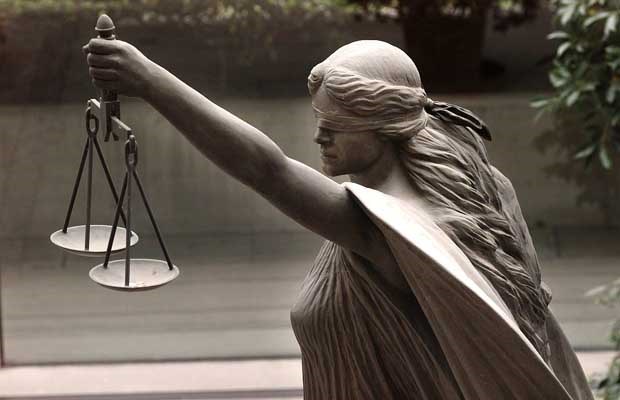A B.C. Supreme Court judge accused of “a reasonable apprehension of bias” has refused to recuse himself from ruling on cases related to anti-pipeline protests.
In late November 2018, two opponents of the Trans Mountain expansion (TMX) project, Mairy Beam and Rita Wong, formally requested Judge Kenneth Affleck remove himself from their criminal contempt of court case. The two women were arrested on Aug. 24 for allegedly violating an injunction meant to prevent interference with work on the project.
Affleck has ruled on dozens of criminal contempt of court cases following repeated blockades of Trans Mountain facilities in Burnaby by environmental and Indigenous-rights activists.
Wong and Beam, who represented themselves in court, argued Affleck acted in ways that allow the perception of bias.
“Any reasonable observer would perceive Judge Kenneth Affleck as being biased against land and water defenders,” Wong said in an emailed statement to the NOW. “Judge Affleck appears to have a vested self-interest in his own court-ordered injunction.”
But in a ruling issued days later, Affleck dismissed the recusal request.
In his ruling, the judge explains one-by-one why he did not accept the arguments made by the protesters.
Wong and Beam argued he should not be ruling on the application of the injunction because he also granted it.
“There is no rule that a recusal application must be heard by a judge other than the judge whose recusal is requested,” he wrote.
The protesters said Affleck’s refusal to order a Gladue report – meant to consider the impact of sentencing on an Indigenous defendant – for a First Nations woman convicted of criminal contempt of court. Affleck said he refused her request for a Gladue report because Crown lawyers had not requested jail time for her.
The recusal application also said Affleck showed perceivable bias in sentencing Green Party of Canada leader Elizabeth May. The applicants argued Affleck gave no reasons for imposing a $1,500 fine when a Crown submission sought only $500.
Affleck said he did, in fact, give reasons. Quoting from May’s sentencing, he said she was given a more harsh sentence due to her public profile, influence and responsibilities as a Parliamentarian.
But if May’s sentence was, indeed, unfair, it would have been an error of law, not a matter of bias, Affleck said. He pointed out that May had the opportunity to appeal the sentence and did not.
Beam and Wong also said Affleck was wrong to impose a 14-day jail term on protesters, based on the idea that they were aware previous protesters had been sentence to jail. The protesters claimed Affleck had no proof they knew.
Again, Affleck said if that assertion is true it would have been an error of law and subject to appeal, not a matter of bias.
Affleck dismissed another assertion of bias from another sentencing on the same “error in law” basis.
The judge was also accused of bias for sentencing a proteser to jail despite her having health issues. The protesters pointed to the fact former B.C. Teachers’ Federation president Susan Lambert claimed to have received improper medical care while in custody.
But the protester, identified as Ms. McLean, was sentenced before Lambert made her claim of poor treatment, Affleck said.
“I do not accept that Ms. Lambert’s evidence, deposed to on Nov. 20, 2018 and which I obviously could not have taken into account on Oct. 30, 2018, can be the basis for a finding that there is a reasonable apprehension of bias arising out of Ms. McLean’s sentencing,” Affleck said.
The applicants took comments made by Affleck in previous proceedings out of context, he said. They quoted statements he made in which he told counsel for the attorney general why the injunction cases should proceed as criminal contempt of court, not civil contempt of court.
The protesters said he had pre-judged the defendants as guilty, but he provided a longer version of his quotes from that day and highlighted he used the phrase “if proven” several times.
Affleck also said that when he cut off a defendant wishing to make a statement at her sentencing hearing, he did so because she was referencing matters not relevant to her sentencing.
“The management of the court process is not evidence supporting a reasonable apprehension of bias,” he said.
He also dismissed an argument from Wong that he must apply “natural law” rather than “man-made laws.”
“It is not open to a judge of this court to refuse to apply the law of this province and instead seek to apply the vaguely defined concept of natural law,” Affleck said. “The recusal application is dismissed.”



